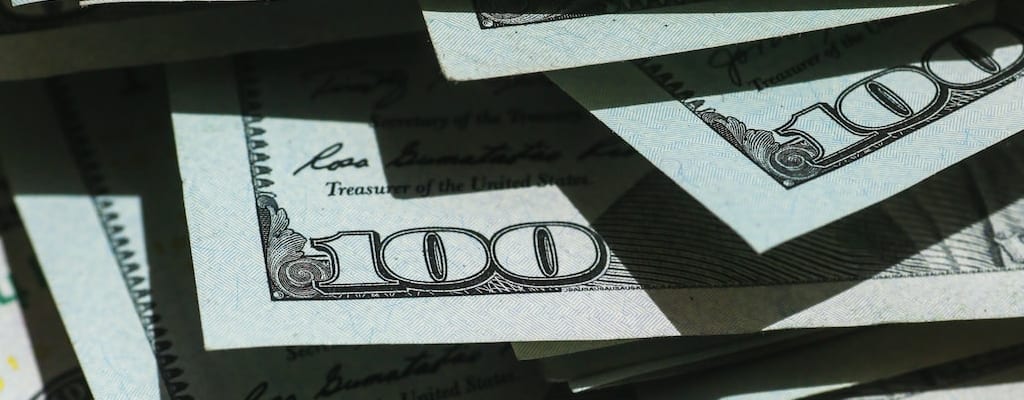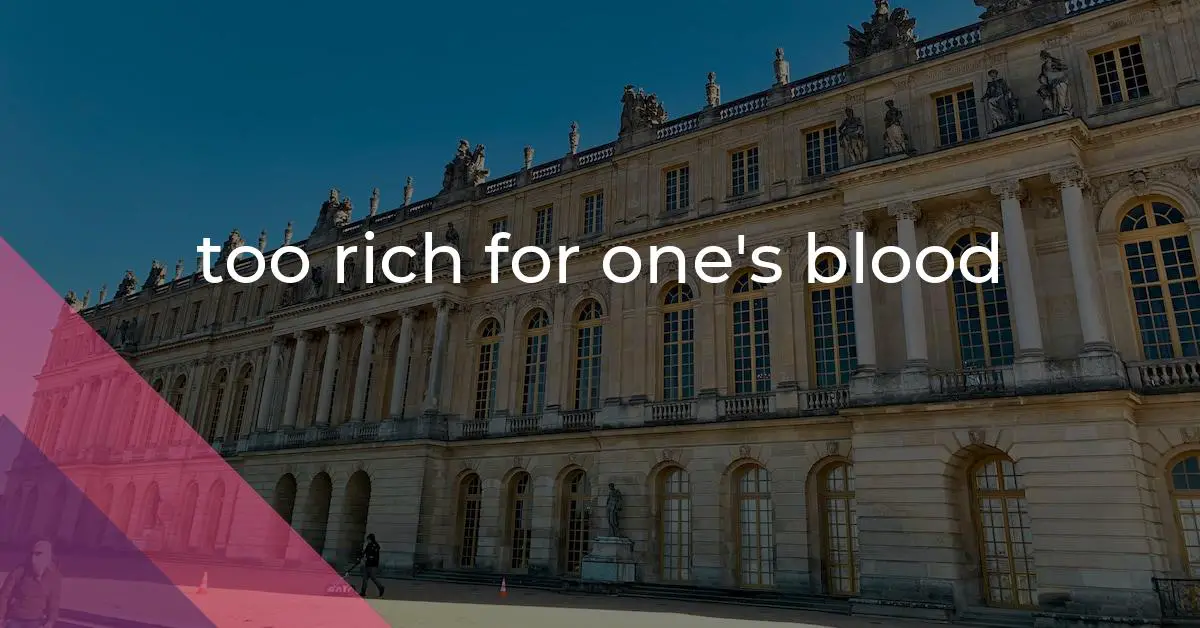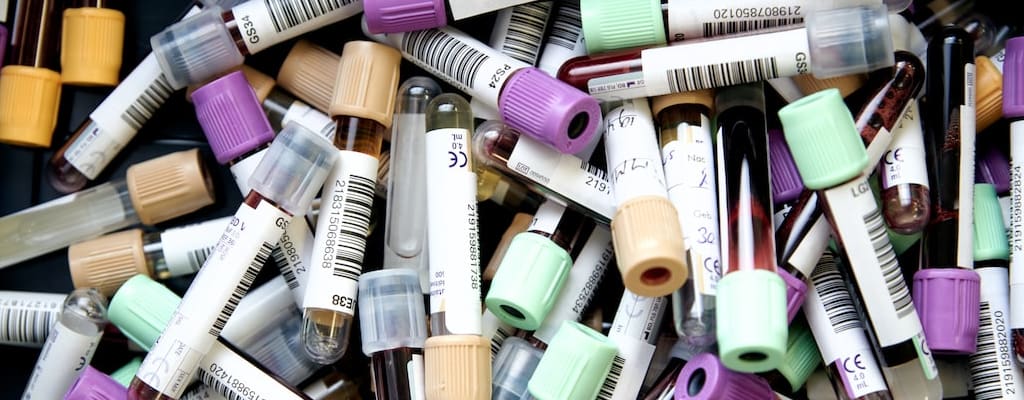too rich for one’s blood: Idiom Meaning and Origin
What does ‘too rich for one's blood’ mean?
The idiom "too rich for one's blood" means something is too expensive for someone's financial means or taste.

Idiom Explorer
The idiom "worth one's weight in gold" means that someone or something is extremely valuable or precious.
An idiom that means someone is very poor and has no money.
The idiom "too good to be true" means that something appears to be extremely good or favorable, but it is unlikely to be real or genuine.
The idiom "too big for one's britches" means to be overly confident or arrogant, behaving as if one is more important or capable than they actually are.
The idiom "pretty penny" means a significant or large amount of money. It is often used to emphasize the high cost or value of something.
The idiom "poor little rich girl" refers to a young woman who is wealthy but feels unhappy or dissatisfied because of the privileges and material possessions she has. Despite her financial advantages, she may face challenges or emotional difficulties that money cannot solve.
The idiom "out for blood" means to be extremely angry and determined to seek revenge or cause harm to someone.
The idiom "on the breadline" means to be in a state of poverty or financial hardship.
The idiom "one too many" means to have or consume more of something than is considered acceptable or appropriate.
The idiom "one's blood is up" means to be extremely angry or excited, often as a result of feeling provoked or challenged. It is a figurative expression that suggests a heightened state of emotion or intensity.
Inaccessible Luxury
Throughout history, idioms have played a significant role in the English language, providing colorful and often metaphorical expressions. One such idiom is "too rich for one's blood." This idiom is used to describe something that is too expensive or extravagant for someone's taste or financial means.
In the world of poker, a player is said to be "in the blood" when they are actively involved in a game and have a personal stake in it. This implies that the player is emotionally invested and willing to risk their money. However, when a hand is too expensive, the player may feel that it exceeds their comfort zone and is not worth the risk. This notion of being unwilling or unable to afford certain bets gradually expanded beyond the poker table and entered the realm of everyday discourse.
The idiom "too rich for one's blood" gained popularity and wider usage in the early 20th century, particularly in the United States. It became a way for individuals to express their financial limitations or distaste for excessive spending. The idiom conveys a sense of exclusivity and luxuriousness that is out of reach for the average person.
Over time, the idiom has evolved to encompass not only financial constraints but also personal preferences and values. It can be used to express a lack of interest or desire for something that goes against one's beliefs or priorities. For example, a person may find a lavish vacation too rich for their blood not only because of the cost but also because they prefer a simpler and more modest lifestyle.
The idiom "too rich for one's blood" is related to the idioms "two pennies to rub together" and "live beyond one's means." These idioms also revolve around the theme of financial limitations and the inability to afford certain things. "Two pennies to rub together" is used to describe someone who is very poor and cannot afford basic necessities. This idiom implies that the person is so financially strapped that they don't even have two pennies to rub together. So, if something is too rich for their blood, it is certainly out of their financial reach.
Similarly, "live beyond one's means" refers to someone who spends more money than they can afford, often resulting in debt or financial troubles. If someone is living beyond their means, it means that they are already struggling financially and cannot afford anything that is considered too rich for their blood. These three idioms are interconnected in their portrayal of financial limitations and the inability to afford certain things.
While the exact origin of the idiom "too rich for one's blood" may be uncertain, its connection to the world of poker and gambling is well-established. Its usage has since expanded to different contexts, highlighting the idiom's malleability and adaptability. Idioms, in general, reflect the cultural and historical background of a language, and "too rich for one's blood" is no exception, representing the values and attitudes towards wealth and extravagance in American society.
When examining idioms like "too rich for one's blood," "two pennies to rub together," and "live beyond one's means," we are reminded of the nuances and complexities of language. Each idiom carries its own history and cultural significance, providing a glimpse into the timeless human fascination with metaphor and expression. As we delve into the origins and meanings of idioms, we uncover not only their linguistic roots but also the broader tapestry of human experience.
Example usage
Examples of how the idiom too rich for one's blood can be used in a sentence:
- He wanted to purchase a luxury car, but it was too rich for his blood.
- She considered going on a luxurious vacation, but the cost was too rich for her blood.
- The price of the designer handbag was too rich for my blood, so I opted for a more affordable option.
More "Money" idioms



